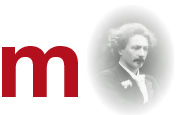« I have been chosen to be Poland’s Prime Minister. This shall prove the greatest sacrifice I have ever made in my life. » Ignacy Paderewski, January 1919
The patriot
Propelled despite Himself to the Head of Reinstated Poland
Facing a Poland torn between a tsarist Russia, an imperial Austria-Hungary and a royal Prussia (soon to become Imperial Germany), Ignacy Paderewski could have settled for an ordinary citizen’s resistance – one that focused on charitable, moral and artistic endeavours. But his worldwide influence and activist commitment compelled him to go further: all the way to the political arena where he left a glorious, albeit fleeting mark, in early 1919, at the time of the Versailles Treaty and the constitution of reinstated Poland’s first National Union Government. Forced to resign a mere few months after his election, he remained the defender of a free and proud nation to his last breath; he was recognized as one of the great men in this world, and buried as such.
1916-1917 Ambassador to President Wilson
A fierce patriot, Paderewski appealed for his fellow countrymen in exile to engage in active resistance. He led a group of volunteers who went to fight in Northern France trenches during the last war months. Buoyed by a fame arisen from conference tours, he approached President Wilson directly... and struck luck. Founded in Lausanne in August 1917, the Polish National Committee appointed him as their delegate in Washington. Paderewski had absolutely no experience in politics, but his charisma worked wonders. His memorandum on the Polish Question inspired President Wilson as he drafted the Thirteenth Point of his famed Fourteen Points, a blueprint for peace: « An independent Polish state should be erected which should include the territories inhabited by indisputably Polish populations, which should be assured a free and secure access to the sea, and whose political and economic independence and territorial integrity should be guaranteed by international covenant. »
1918-1919The return of the providential man
In November 1918, as cannons fell silent, at last, on a decimated Europe, the situation was extremely chaotic in Poland. The Allies decided to call upon the only man who, in their eyes, was capable of consolidating Polish national unity: Paderewski. « We trust in you and we believe your presence will prevent bloodshed », declared British Foreign Secretary Arthur Balfour. How could he resist such an appeal? He was in still-occupied Danzig on Christmas Day and in Warsaw by 5th January 1919. Although the people welcomed him triumphantly, the task at hand was dizzying to say the least. Summoned (reluctantly) by Marshall Pilsudski to form a national union government on 17th January, he complied within 48 hours and gained the recognition of the Great Four (United States, Great Britain, France and Italy) by 20th January. The first free parliamentary elections in 140 years were held six days later.
1919 The fleeting triumph of Versailles
Following the jubilation of returning to his homeland and the stream of congratulations, Paderewski was confronted by harsh reality. He was considered (wrongly so) as responsible for every difficulty the young Polish Republic had to face – despite the fact that what he had obtained from the international community was quite a feat in itself! In consequence, he stepped down as early as December. Still, nothing could impair his sense of triumph on 28th June 1919. In the Hall of Mirrors of the Palace of Versailles, following bitter negotiations with representatives of the Great Four, he signed, along with President of the National Polish Committee, Roman Dmowski, a historic treaty with Germany, which reinstated Poland on the European map after 124 years of absence. Ratified on 24th July by the Polish Diet, it was followed on 10th September by the Treaty of Saint-Germain-en-Laye with Austria.
1920-1940 « Front de Morges » and presidency of polish government-in-exile
Back in « civilian » life after a decade almost solely devoted to Poland, Paderewski never lost sight of his homeland again... and of the 33 governments that ensued until 1939! In July 1920, upon the request of British Prime Minister Lloyd George, he was appointed Chief Delegate for Poland to the still very young League of Nations, to partake in discussions on the Polish-Russian dispute... but had to rapidly throw in the towel in the face of the cynicism displayed by the government he represented. He then focused his action on resistance abroad. In February 1936, he gathered several Polish opposition leaders to try and form a united front against the militaries who had been ruling over Poland with an iron fist since Marshall Pilsudski’s coup ten years earlier. Nicknamed the « Front de Morges », it never actually represented a real threat for the power in place. In 1939, resistance continued. Poland was occupied, and Paderewski became the head in Paris of a Polish government-in-exile.


